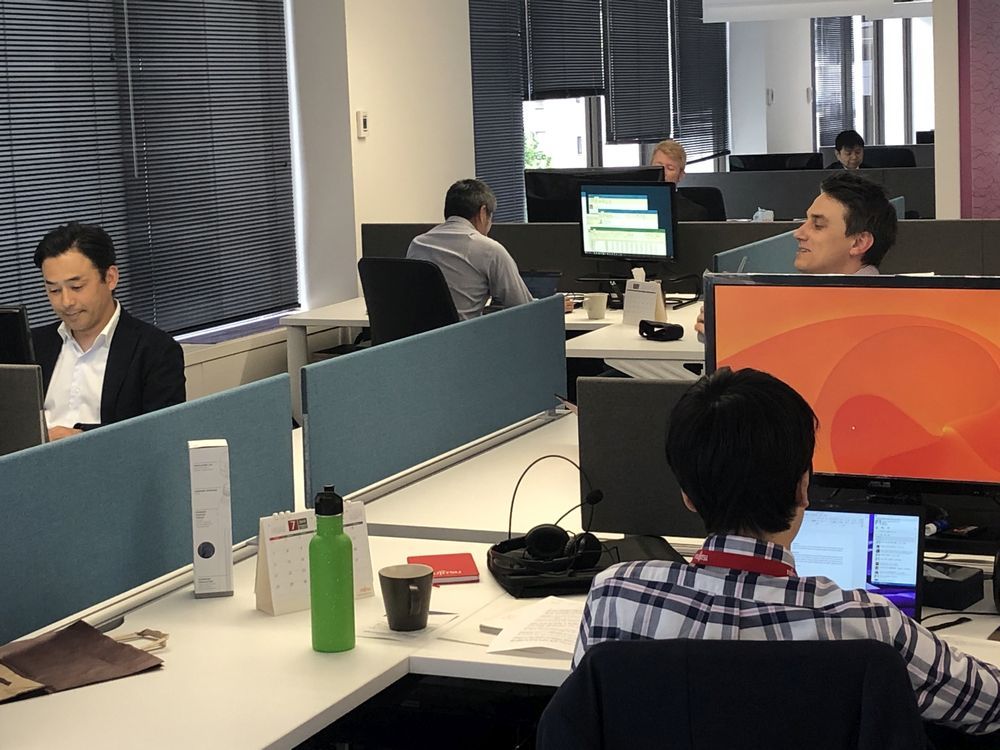Artificial intelligence firms in B.C. want more federal support

Credit to Author: Nick Eagland| Date: Fri, 04 Oct 2019 20:36:29 +0000
A new survey found that more than half of B.C’s. artificial intelligence companies believe the federal government is not doing enough to boost the sector, and half have considered leaving the province.
The non-profit industry association, Artificial Intelligence Network of B.C., says there are more than 150 AI-related firms in B.C. and more than 65 submitted responses to its survey, which was conducted by CityAge and released this week.
More than 56 per cent of respondents said the federal government needs to do more to help the local AI sector grow, with 31 per cent saying its efforts were lacking and 24 per cent saying they needed major attention.
Half of respondents said they have considered moving their companies out of B.C. They main reasons they gave were a desire to connect to bigger markets (35 per cent) and to operate in a better taxation and regulatory environment (11 per cent).
The firms said their most significant impediments to growth were lack of capital (30 per cent) and an inability to access the right talent (27 per cent).
But they also showed hope for the future, with 47 per cent saying they are “very confident” they will grow over the next three to five years, and 33 per cent saying they are “solid” but could be doing better.
Handol Kim, vice-chair of Network, said federal funding and support don’t measure up to the size and pace of B.C.’s AI sector, and should be earmarked for research.
“Most people don’t even know there’s an AI industry and so it’s incumbent upon us within the industry and community to create the awareness of what is here,” Kim said. “What is here is good.”
Kim said local firms and their technologies are thriving, like MetaOptima’s intelligent dermatology, Finn AI’s conversational AI for banking and Sanctuary AI’s ultra human-like robots. Both Simon Fraser University and the University of B.C. have strong AI research departments.
Japanese tech giant Fujitsu made Vancouver home for it international headquarters for AI services, which opened with about 20 employees in July. In May, RBC Royal Bank opened a research institute for artificial intelligence under the name Borealis AI, with around 90 researchers and employees including 30 at its office in Yaletown.
Handol Kim, vice-chair of AInBC and CEO of Variational.AI
“We have almost the same number of AI companies as gaming companies,” said Kim, who is CEO of Variational AI. “Granted they have fewer employees than gaming companies but at the same time, it’s a burgeoning industry.”
In 2017, the federal budget included $125 million in funding for AI research at institutes in Edmonton, Toronto and Montreal. Kim said those centres boast AI “super star” and “rock star” researchers with international name recognition. B.C.’s sector hasn’t been able to market itself that way but has plenty to offer, Kim said.
“The tech industry doesn’t automatically assume the government is going to help,” he said. “But where government does have a role to play is in research and funding research, especially when we have a tenuous lead and a good position, and we’re getting outspent.”
CityAge is partnering with the Artificial Intelligence Network for CrossOver: AI, a conference in Vancouver on Dec. 9, which will help draw national attention to B.C.’s sector, said CityAge co-founder Miro Cernetig.
Cernetig, owner of branding agency Catalytico, said B.C.’s sector is strong at commercializing its technology — getting it to market for a profit. But he worries that Canada is too often recognized only for its natural resources, when it has plenty of “human capital” to give it an edge in the development of AI, particularly in B.C.
“It’s important that Vancouver and British Columbia be fully integrated into the national data strategy, which includes AI,” he said.
“Because the only way we’ll be able to compete globally is if we take all of the best pieces and nodes of excellent across the country and bring them together into a true Canadian approach.”
The team at Fujitsu Intelligence Technology, the Japanese firm’s new AI headquarters in Vancouver.
With files from Derrick Penner